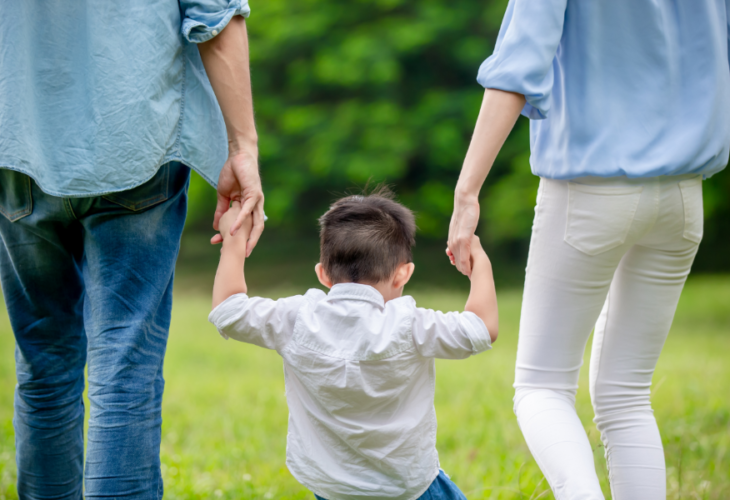You’re familiar with helicopter parenting. Maybe you’ve been a victim of it as a millennial. If you have children, you may mentally believe that helicopter parenting, also known as hovering, hovering, hovering, worrying, worrying about your child, is bad.
parenting is not easy. How can you stop worrying about all the possible problems in your child’s lives? Mothers need to be aware that their child could suffer more from this than they benefit.
There is another way. Scaffold parenting can be a step back in helicopter parenting. It may give you peace of mind and provide your child with the tools to avoid those worrying situations.
What’s Scaffold Parenting?
What is scaffold parenting?
Simply put, scaffold parenting means that parents provide support and structure for their children. It is the scaffolding to their building. The scaffolding helps children avoid falling into dangerous situations, but it doesn’t completely smother them. The scaffolding is then removed when the child proves that they can stand on their own.
Parenting with Older Children
You might offer a little scaffolding (aka support) to your child as they leave home and start college. You might remind them to turn in their assignments, or send them a piece on STDs that will hopefully encourage them to visit the university’s health resource center to get some birth control. You can let them know that they are capable of getting straight A’s and paying their bills on time, and they won’t have an STD or unplanned pregnancy. Because the building is strong enough to stand on its own, the scaffolding has been removed.
A helicopter parent, on the other hand, might pay the child’s bills; buy their child the birth control and place it in their nightstand. Then call the professor to check how the child is doing in class. Although it seems absurd, it does happen more often than you might imagine.
Scaffold Parenting for Younger Children
What about scaffolding parenting your child before they leave the nest? Is it possible to scaffold-parent your toddler or adolescent? Absolutely! Although it may seem a bit more difficult, it can help your child to be resilient and persevering.
Let’s say that your toddler is trying to learn a skill, such as how to put together a multi-part toy. You can help your child assemble the toy if they are struggling or struggling. However, this would be helicopter parenting. Although you have solved your child’s problem to make them happy and they are now competent in basic skills, they still need to learn.
Instead of suggesting that your child put the pieces together in a different manner, you might suggest that they do so. Or you could show them how to put the pieces together and then have them take apart the pieces to fix it themselves. Your child will be able to learn on their own and you’ll provide that scaffolding.
The Key To Scaffold Parenting
To scaffold parenting, you must give your child the support, structure, and guidance that they need to succeed. You should let them know they can talk to you about any issues they have, but also that they can do things themselves without your interference. They should feel empowered but also feel that you are there for them.
More Information About Scaffold Parenting
Learn more about scaffold parenting, because it’s like any child psychology concept or parenting tool, is always more complicated than you think. You can find out more through books such The Scaffold Effect. Raising resilient, self-reliant, and secure children in an age of anxiety and other parenting and psychology publications like Psychology Today.



